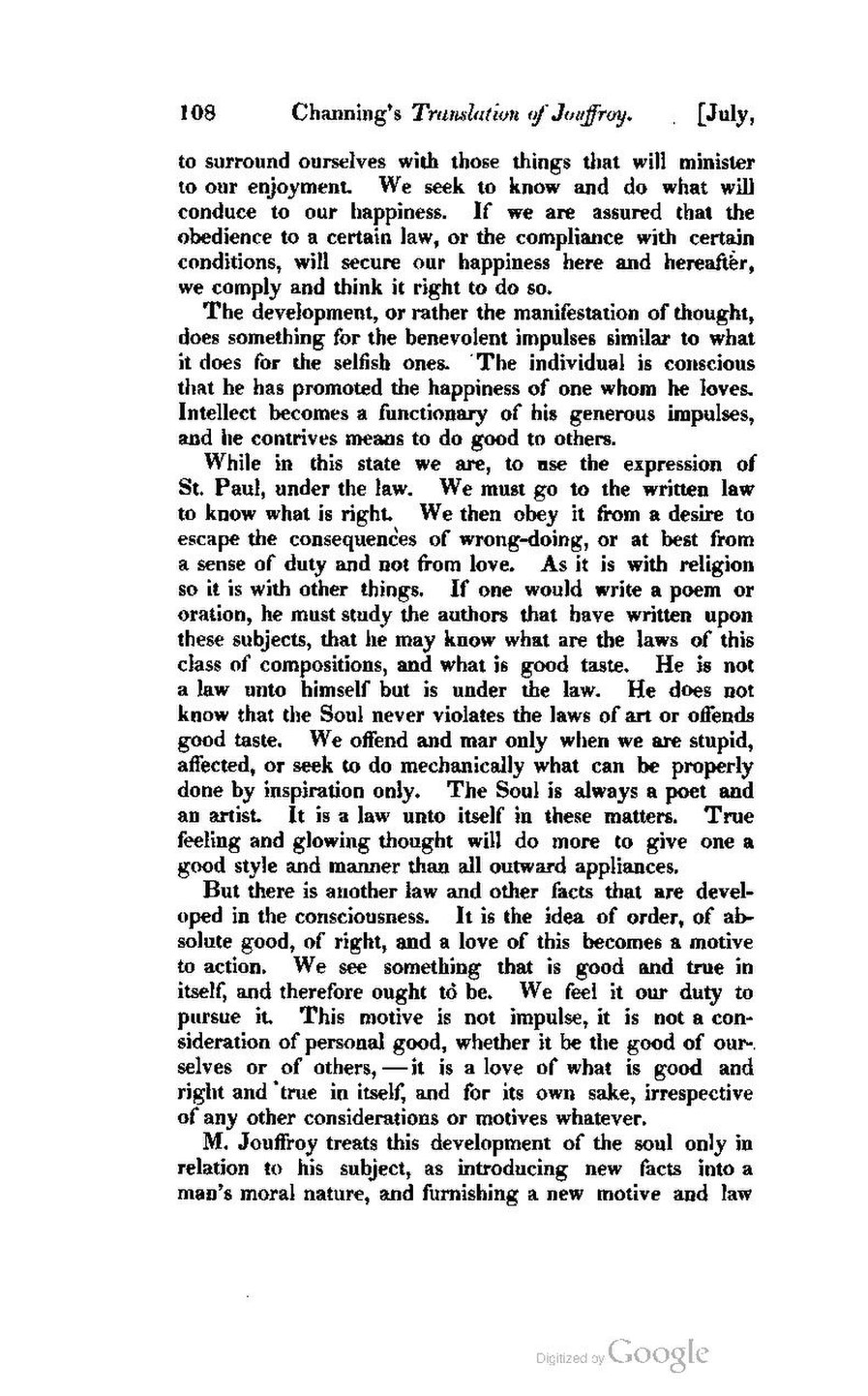to surround ourselves with those things that will minister to our enjoyment. We seek to know and do what will conduce to our happiness. If we are assured that the obedience to a certain law, or the compliance with certain conditions, will secure our happiness here and hereafter, we comply and think it right to do so.
The development, or rather the manifestation of thought, does something for the benevolent impulses similar to what it does for the selfish ones. The individual is conscious that he has promoted the happiness of one whom he loves. Intellect becomes a functionary of his generous impulses, and he contrives means to do good to others.
While in this state we are, to use the expression of St. Paul, under the law. We must go to the written law to know what is right. We then obey it from a desire to escape the consequences of wrong-doing, or at best from a sense of duty and not from love. As it is with religion so it is with other things. If one would write a poem or oration, he must study the authors that have written upon these subjects, that he may know what are the laws of this class of compositions, and what is good taste. He is not a law unto himself but is under the law. He does not know that the Soul never violates the laws of art or offends good taste. We offend and mar only when we are stupid, affected, or seek to do mechanically what can be properly done by inspiration only. The Soul is always a poet and an artist. It is a law unto itself in these matters. True feeling and glowing thought will do more to give one a good style and manner than all outward appliances.
But there is another law and other facts that are developed in the consciousness. It is the idea of order, of absolute good, of right, and a love of this becomes a motive to action. We see something that is good and true in itself, and therefore ought to be. We feel it our duty to pursue it. This motive is not impulse, it is not a consideration of personal good, whether it be the good of ourselves or of others,—it is a love of what is good and right and true in itself, and for its own sake, irrespective of any other considerations or motives whatever.
M. Jouffroy treats this development of the soul only in relation to his subject, as introducing new facts into a man's moral nature, and furnishing a new motive and law
